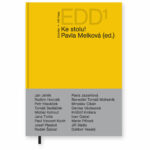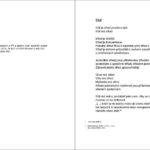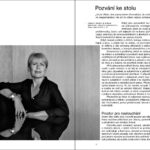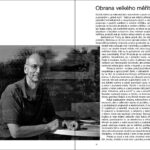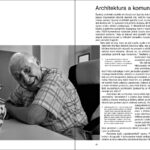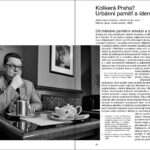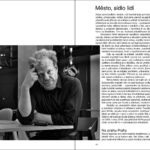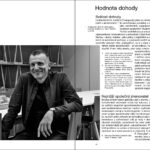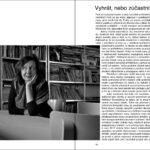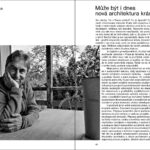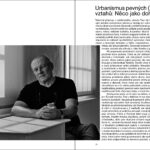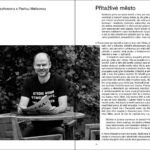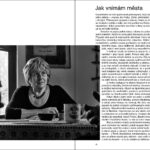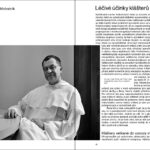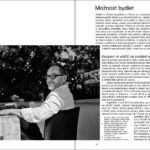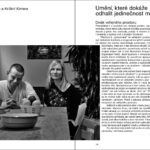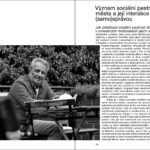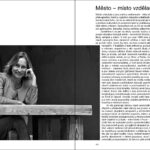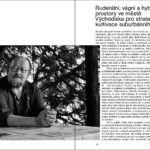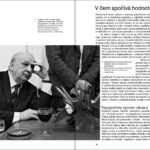Ke stolu!
autor: Pavla Melková (ed.)
grafická úprava: Robert V. Novák
nakladatel: Dokořán ve spolupráci s IPR Praha
Rok: 2019
ISBN: 978-80-7363-970-9
Pozvání Ke stolu! editorky Pavly Melkové svedlo dohromady devatenáct autorů z různých profesních oblastí. Jejich úkolem bylo identifikovat a literárně uchopit, každý sám za sebe, jedno téma, pro něj osobně důležité, vycházející z jeho vlastní zkušenosti vnímání města. U pomyslného stolu debatovali Pavla Melková, Jan Jehlík, Radkin Honzák, Petr Hlaváček, Tomáš Sedláček, Michal Kohout, Jana Tichá, Paul Vincent Koch, Josef Pleskot, Radek Špicar, Pavla Jazairiová, Benedikt Tomáš Mohelník, Miroslav Cikán, Denisa Václavová, Krištof Kintera, Ivan Gabal, Marie Pětová, Jiří Sádlo a Dalibor Veselý.
To the Table!
As specialists in creating urban environments, we work on strategic planning and zoning documents that attempt to address issues in their entire complexity. In doing so, we often find our ideas and language tangled up in incomprehensible and long-winded forms, and the clarity of particular topics is lost along the way.
On the other hand, when we sit down at a table with friends, colleagues, family or even strangers and the conversation turns to the city, architecture and world around us, suddenly most of us can use simple language to talk about the particular topics we often think about and are close to our hearts.
The aim of this book is to create a space for listening, which can then open the space for questions, arguments and a common search for solutions.
Sixteen authors from different fields were approached and asked to select an issue they considered topical for Prague that was also personally and professionally close to their heart. Each author’s decision to prioritize a single topic represents an important stance, and respecting this choice is a part of this book’s concept.
This imaginary round table brings together architects, educators, a philosopher, historian, sociologist, developer, doctor, economists, journalist and traveller, artists, priest, academics, theoretician, architectural philosopher, dean and natural scientist. Independent ideas cross paths over the centre of the table and gradually grow into nodes of common and divergent thought. Surprisingly, consensus emerges at their foundations, addressing exactly those areas of the city deemed problematic and presenting possible focal points of change.
